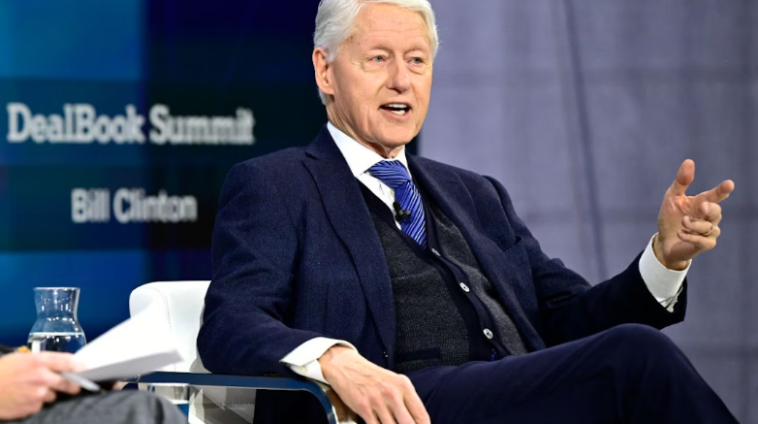Former President Bill Clinton has weighed in on President Joe Biden’s controversial decision to pardon his son, Hunter Biden, emphasizing that it should not be compared to Clinton’s 2001 pardon of his half-brother, Roger Clinton. Speaking at the 2024 DealBook Summit, Clinton explained the key differences between the two cases, aiming to clarify the public discourse surrounding presidential pardons.
Contrasting Circumstances
Clinton noted that his brother, Roger, served a 14-month federal prison sentence for a 1985 drug conviction before receiving a pardon at the end of Clinton’s presidency. The pardon, according to Clinton, was intended to restore civil rights, such as the right to vote, after Roger had already paid his debt to society.
In contrast, Hunter Biden’s pardon is preemptive, absolving him of all offenses committed between January 1, 2014, and December 1, 2024. The younger Biden faced federal gun and tax-related charges but had not been convicted or served time when his father issued the pardon. President Biden defended the decision, claiming his son was unfairly targeted due to their familial relationship and that the charges were politically motivated.
Clinton Reflects on Public Trust
Addressing the broader implications, Clinton acknowledged that presidential pardons, particularly those involving family members, risk eroding public trust. “These decisions carry weight not just legally but symbolically. They test the boundaries of what the public sees as fair and just,” he stated. However, he stopped short of criticizing Biden, emphasizing that each situation is unique and that the president must weigh personal and public considerations carefully.
Reaction to Hunter Biden’s Pardon
The pardon of Hunter Biden has sparked a firestorm of debate, with critics accusing President Biden of abusing his executive powers to shield his family from accountability. Others argue that the move is consistent with the president’s prerogative to grant clemency and was a necessary response to what he deemed a miscarriage of justice.
Clinton’s comments add another layer to the ongoing discussion about the appropriate use of presidential pardons and the ethical challenges they present. As public scrutiny of Biden’s decision continues, comparisons to past pardons like Clinton’s are likely to remain a point of contention in political and public discourse.
WATCH BELOW
Bill Clinton takes umbrage with the comparison between his pardon of his brother and Joe Biden’s pardon of Hunter, because Bill’s brother served his full sentence in prison:
“My brother did 14 months in a federal prison.”Sounds like Bill is saying ‘Lock him up’ pic.twitter.com/Xye8lXRtFG
— Eric Abbenante (@EricAbbenante) December 5, 2024


